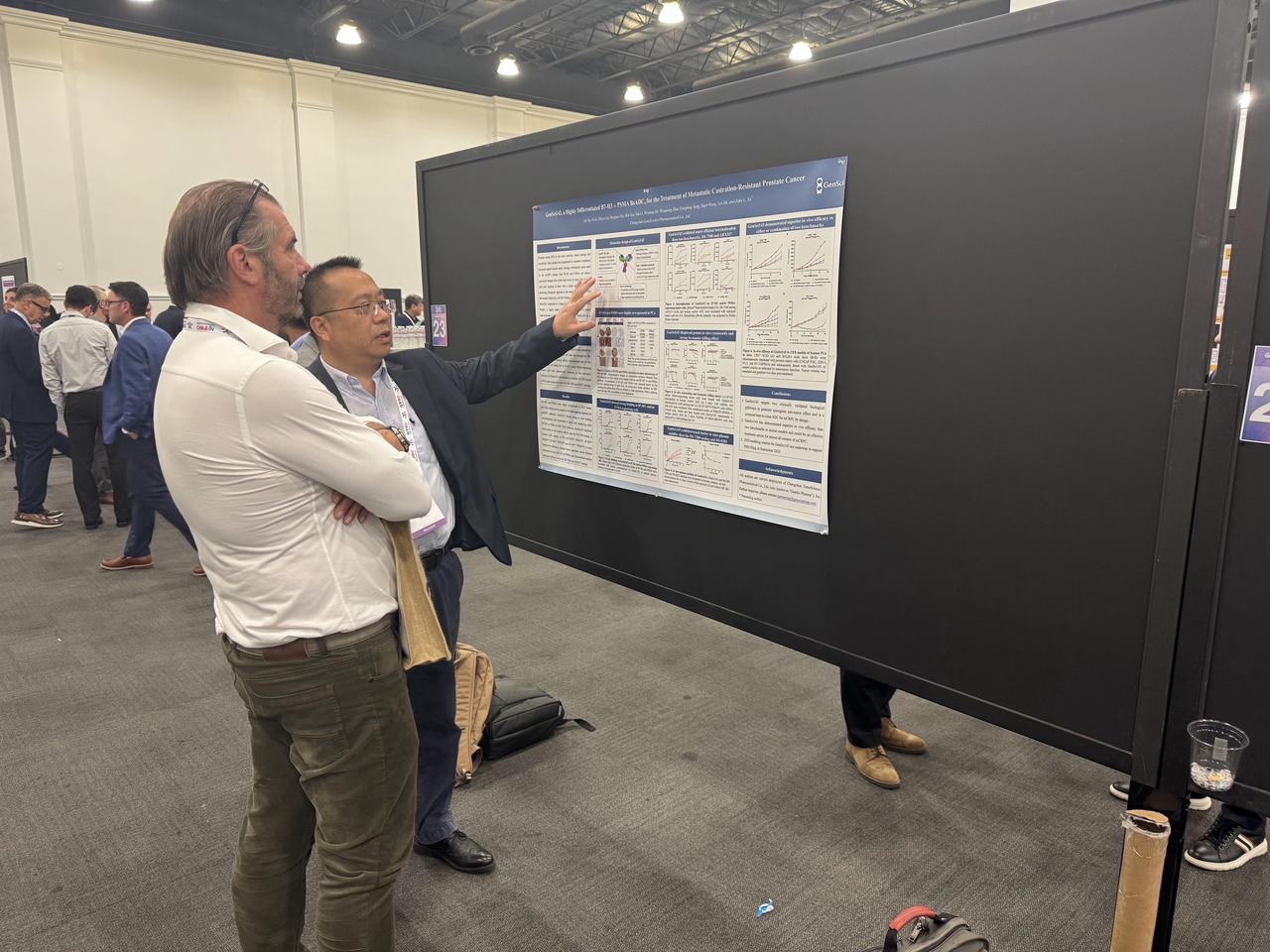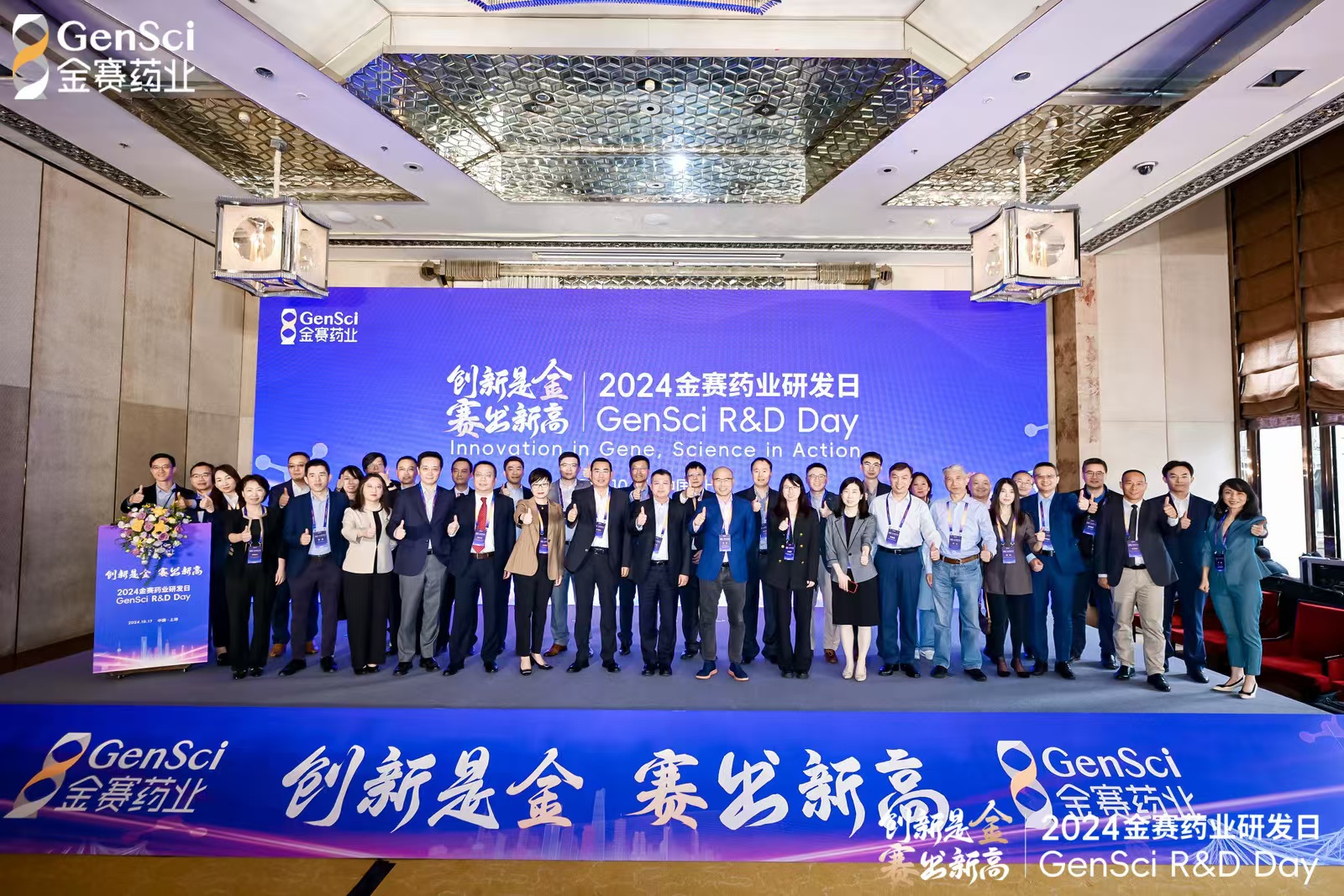Chinese Monoclonal Anti-IL-1β Breakthrough: Acute Gout Arthritis Treatment Impresses at ACR 2024
Time
2024-11-20
Readership
1860
Share



The 2024 ACR Convergence, the American College of Rheumatology's annual meeting, convened in Washington, D.C., USA, from November 14th to 19th, featuring the latest advancements and trending topics in rheumatology. At this prestigious event, the latest Phase III clinical trial results for Genakumab, now rebranded as Firsekibart, a novel fully humanized monoclonal anti-IL-1β antibody developed in-house by GenSci, was reported. This groundbreaking drug is designed to treat Acute Gouty Arthritis by targeting the IL-1β pathway in patients suffering from gout flare.

The GUARD-1 study, a prospective, randomized, multicenter, active-controlled trial, was led by Professor Zou Hejian the Rheumatology Department at Huashan Hospital, Fudan University. This study was designed to investigate the efficacy and safety of Firsekibart vs Compound betamethasone in treatment of Chinese adult patients with gout flare. A total of 313 patients, who met the ACR preliminary criteria for acute gout arthritis and contraindicated for, intolerant of, or refractory to NSAIDs and/or colchicine, with at least two episodes in the preceding 12 months, were randomized with ratio 1:1 to receive a single dose of Firsekibart 200 mg or Compound betamethasone 7 mg IM, and administered in case of a new episode. The study comprised a 48-week treatment period, including a 24-week double-blind treatment phase and a 24-week open-label intervention phase, during which all patients could receive Firsekibart. Following this, there was a 12-week safety follow-up period, during which all patients could also receive Firsekibart.
The study results reveal that in adults for whom NSAIDs and/or colchicine are contraindicated, not tolerated, or ineffective, Firsekibart has shown non-inferiority to Compound betamethasone in alleviating pain associated with acute gout arthritis attacks. Moreover, Firsekibart demonstrated superiority over Compound betamethasone in delaying the onset of new flares within 12 weeks, an effect that was sustained through the 24-week mark. These findings suggest that Firsekibart may be considered 'Best-in-class' among monoclonal IL-1β antibodies.

The TIDE research of the China Society of Endocrinology, covering 31 provinces of mainland China, showed that the weighted prevalence rates of HUA in Chinese adults were 17.7%, which corresponded to an estimated 185 million adults with HUA in China between 2015 and 2017. The weighted overall standardized prevalence rates of gout in all Chinese adults were 3.2%, corresponding to an estimated 25.56 million adults with gout in China during 2015–2017.
The US Food and Drug Administration (FDA) has approved the IL-1β monoclonal antibody——Ilaris (canakinumab) for the treatment of gout flares in adults who cannot be treated with NSAIDs, colchicine, or repeated courses of corticosteroids. The drug is also indicated for people who could not tolerate or had an inadequate response to NSAIDs or colchicine. However, no IL-1β monoclonal antibody has been approved in China yet, leaving a pressing clinical need for patients with recurrent acute gouty arthritis to be met.
In April 2024, the domestic Class 1.1 new drug, the monoclonal IL-1β antibody Firsekibart, indicated for acute gouty arthritis flares, received the 'Acceptance Notice' from the National Medical Products Administration (NMPA), signaling the acceptance of its marketing application. The results of the GUARD-1 study publicized at the ACR Convergence have sparked anticipation among patients and doctors for the IL-1β monoclonal antibody Firsekibart, hoping its NDA-approved process can be accelerated to fill the gap in this drug category.









